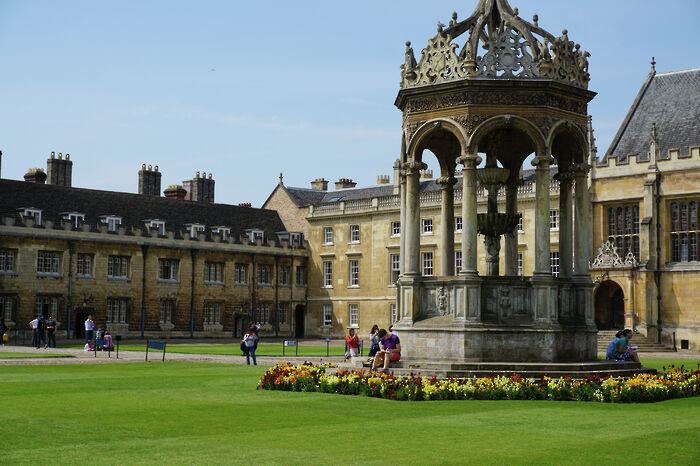Analysis: What does it take to top Tompkins?
Is it sports? Is it graft? Is it having a large proportion of well-funded mathmos? Varsity takes a look at the secrets of academic success

Trinity College has topped the Tompkins Table once again, to make it the last seven years on the trot. That lead is narrowing, however – Christ’s and John’s are snapping at its heels, and the ranking has thrown up surprises in the past. But why do certain colleges perform better than others, and what are the secrets to success?
Because of the formula used to calculate the Tompkins Table, the results of smaller colleges can vary wildly year on year, as the results of each individual count more than in a larger college. Even so, number of students does not noticeably affect a college’s performance in the Tompkins Table, with larger colleges being favoured only slightly in this year’s results.
Some obvious factors play into Tompkins performance – colleges with larger fellowships, larger endowments, and which take fewer applicants from the pool tend to perform better. All of these, however, pale in comparison to a college’s population of Maths students, the single strongest correlation with Tompkins Table position.
Last year, more than a third of Maths finalists achieved a first class degree, earning a maximum five points for their college’s Tompkins Table score. This alone might explain Trinity’s domination at the top of the table – one in five mathmos study at the college, and mathmos make up a fifth of the undergraduate body.

Christ’s, whose standout performance was the headline of last year, cemented its place as one of Trinity’s closest rivals in the years to come by taking second place this year. The college attributes its success to a more meritocratic admissions system, which is beginning to bear fruit.
Christ’s senior tutor, Dr Robert Hunt, told Varsity that picking the right talent was the key to the college’s success, saying: “as a beautiful, ancient city-centre College we are lucky enough to attract a strong field of excellent candidates for admission.”
“We place emphasis during the admissions process on objective criteria (school achievements, test results, etc.) to select a truly diverse student body, with students from all backgrounds well represented.”
Hunt said that the college had recently reformed its outreach and admissions systems to ensure greater emphasis on “objective criteria”, adding that Christ’s has “only in the last couple of years been seeing the rewards of the latest change,” as it has taken time for admissions changes to translate into improved overall results.

Lucy Cavendish’s president, Jackie Ashley, suggested her college’s success comes from the effort puts in after students arrive at Cambridge. Lucy Cav put in one of this year’s standout performances, climbing eight ranks to take 18th place – the best ever result for a mature college.
“We have been putting in place new measures to support students from the moment they arrive in Cambridge right through to final examinations,” Ashley told Varsity, “working with our student union, and these have undoubtedly paid off”
She pointed to Lucy Cav students’ successes in extra-curricular activities, including two college members rowing as part of the Boat Race team this year. Physical and emotional health are strong drivers of academic success and help prepare our students for the world beyond Cambridge. As we seek to grow our numbers, Lucy Cavendish is going from strength to strength.”
 News / Downing investigates ‘mysterious’ underground burial vault 29 December 2025
News / Downing investigates ‘mysterious’ underground burial vault 29 December 2025 News / Unions protest handling of redundancies at Epidemiology Unit30 December 2025
News / Unions protest handling of redundancies at Epidemiology Unit30 December 2025 Lifestyle / Ask Auntie Alice29 December 2025
Lifestyle / Ask Auntie Alice29 December 2025 Features / ‘Treated like we’re incompetent’: ents officers on college micromanagement30 December 2025
Features / ‘Treated like we’re incompetent’: ents officers on college micromanagement30 December 2025 Science / Astronomical events to look out for over the break29 December 2025
Science / Astronomical events to look out for over the break29 December 2025










